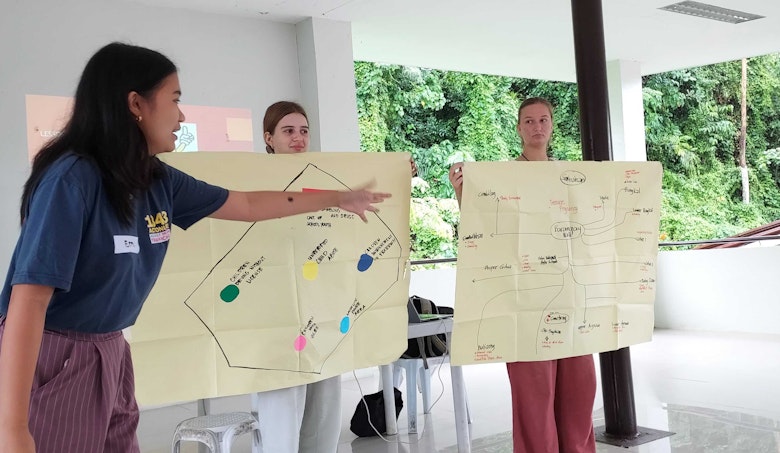Mainstreaming Child Protection in Emergencies at the Community Level
The onslaught of Super Typhoon Rai (locally known as Super Typhoon Odette) in the Philippines in December 2021 caused extensive damage to property and people’s lives.
The typhoon jeopardised children’s safety, as well as their physical and mental health, which may lead to short and long-term psychosocial distress and illnesses that can be detrimental to a child’s development. The event also exacerbated children’s vulnerability to various forms of abuse and exploitation.
To ensure children’s well-being and protect them from abuse and exploitation, Terre des Hommes Netherlands in the Philippines, in collaboration with Bidlisiw Foundation, organised a Training on Child Protection in Emergencies (CPiE) and Referral Pathways for Duty-bearers, Community Leaders and Service Providers in December 2022. The training aims to strengthen the capacity of local governments and communities to respond to children’s needs and child protection issues that are particularly heightened during emergency situations.
The training provided local duty-bearers, service providers, volunteers and organisations an opportunity to learn more about the specific needs of children and how to better protect them especially in times of emergencies. Gender mainstreaming, disability inclusion and meaningful participation of children and youth were also discussed during the activity which sparked some realisations from the participants, including the necessity of working with the local youth councils to implement activities that are geared towards the protection of children from physical and sexual harm, as well as psychosocial distress.
“This is the first time that I have heard of this kind of training. This has opened my mind to do more and be sensitive to the needs of children in all our response efforts,” said by a representative from Guba Barangay Disaster Risk Reduction Management Office in Cebu City.
In a country that is vulnerable to multiple natural and human-induced hazards worsened by climate change like the Philippines, local governments, community leaders, volunteers and community-based organisations are considered to be the first responders in terms of ensuring the safety of children during emergencies. They are the first to witness the harm and impact of emergency situations on communities and provide specialised services to save lives and respond to the needs of various sectors, especially children.
Through the Child Protection in Emergencies and Referral Pathways training, local responders realised the magnitude and significance of their work, and the importance of implementing programs and activities that are responsive to the particular needs of children, including children with diverse SOGIESC (sexual orientation, gender identity, gender expression and sexual characteristics) and children with disabilities. Their participation in the training led them also to recognise the value of creating child-friendly spaces (CFS) in communities and evacuation centres, and providing psychosocial services to children.
“It is important to know more about the establishment of child-friendly spaces because, in reality, it is not that visible in evacuation centres or relocation sites. It’s good to support and establish this kind of intervention for the children,” shared by Angelica, a local responder from Cebu City.
Mainstreaming child protection in emergencies within the national and local disaster risk reduction and management plans will help protect children from all forms of abuse and exploitation, and identify appropriate services that can address their existing and emerging needs both during and post emergency situations.

